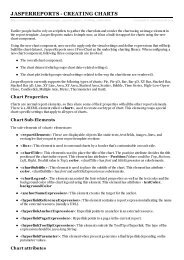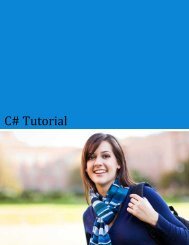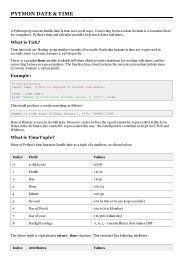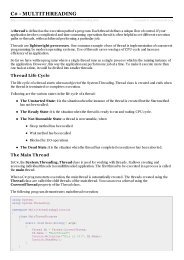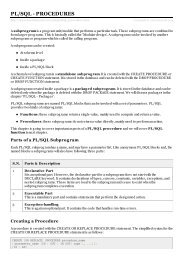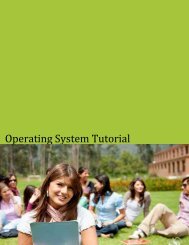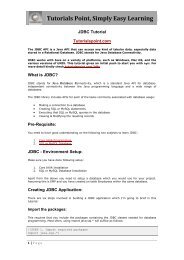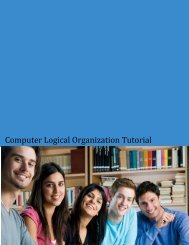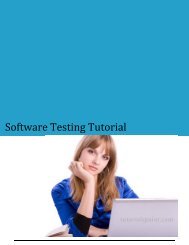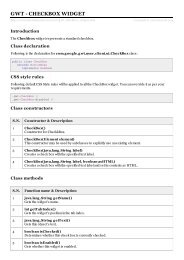download pascal tutorial (pdf - Tutorials Point
download pascal tutorial (pdf - Tutorials Point
download pascal tutorial (pdf - Tutorials Point
You also want an ePaper? Increase the reach of your titles
YUMPU automatically turns print PDFs into web optimized ePapers that Google loves.
The record variables are defined in the usual way as:<br />
var<br />
r1, r2, ... : record-name;<br />
Alternatively, you can directly define a record type variable as:<br />
var<br />
Books : record<br />
title: packed array [1..50] of char;<br />
author: packed array [1..50] of char;<br />
subject: packed array [1..100] of char;<br />
book_id: integer;<br />
end;<br />
Accessing Fields of a Record<br />
To access any field of a record, we use the member access operator (.). The member<br />
access operator is coded as a period between the record variable name and the field that<br />
we wish to access. Following is the example to explain usage of structure:<br />
program exRecords;<br />
type<br />
Books = record<br />
title: packed array [1..50] of char;<br />
author: packed array [1..50] of char;<br />
subject: packed array [1..100] of char;<br />
book_id: longint;<br />
end;<br />
var<br />
Book1, Book2: Books; (* Declare Book1 and Book2 of type Books *)<br />
begin<br />
(* book 1 specification *)<br />
Book1.title := 'C Programming';<br />
Book1.author := 'Nuha Ali ';<br />
Book1.subject := 'C Programming Tutorial';<br />
Book1.book_id := 6495407;<br />
TUTORIALS POINT<br />
Simply Easy Learning Page 102



